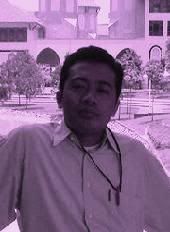Push Property Rights
by Hernando De Soto
Why has the World Trade Center been struck twice? Osama bin Laden told us why himself: It was the symbol of the West’s affluence and economic power. The terrorists, of course, have not offered a real alternative. But so far neither has the West. That is the next challenge for the rich, advanced nations of the West and Japan, which collectively are home to a billion people: to persuade the other 5 billion in the developing and ex-communist world that capitalism can create affluence for them.
The Berlin Wall fell not because capitalism triumphed but because communism failed. I am not sure the United States realizes this. We may tell ourselves that capitalism is the only game in town, yet in 80 percent of the world, capitalism is not yet a reality.
It turns out that building capitalism isn’t so easy after all. In the past 10 years, practically every country has carried out the macroeconomic policies the West recommended: They balanced their budgets, welcomed foreign investment and built stable currencies. Yet from Colombia to Russia, capitalist reformers are derided as apologists for the injustices that plague the poor.
It seems that you cannot construct macroeconomic reforms on sand. Capitalism requires the bedrock of property and other legal institutions, yet most people outside the West have no solid property rights. This means they are excluded from capitalism, because without property no one can really be certain who owns what; addresses cannot be systematically verified, descriptions of assets are not standardized to facilitate transactions, people cannot be made accountable for their debts. As a result, buildings and land cannot be used to guarantee credit, and businesses cannot be divided and represented in salable shares. In fact, without property law, the instruments that store and transfer capital, such as home titles, shares, patent rights and bonds, cannot be created.
Here is where the United States can play a critical role. It has the most sophisticated legal system in the world, and most of the best universities. But it has not yet fully realized the connection between law and the challenges America faces abroad. Worse still, the United States has no real system in place to help other nations build capitalist institutions.
The reason that old and even medieval ideas for social organization are popping up again is that capitalism has not yet offered coherent alternative institutions that are accessible to the poor. It will be interesting to see what will fill that vacuum -- democratic capitalism or its enemies.
This article originally appeared in the Washington Post on January 6, 2002.
Why has the World Trade Center been struck twice? Osama bin Laden told us why himself: It was the symbol of the West’s affluence and economic power. The terrorists, of course, have not offered a real alternative. But so far neither has the West. That is the next challenge for the rich, advanced nations of the West and Japan, which collectively are home to a billion people: to persuade the other 5 billion in the developing and ex-communist world that capitalism can create affluence for them.
The Berlin Wall fell not because capitalism triumphed but because communism failed. I am not sure the United States realizes this. We may tell ourselves that capitalism is the only game in town, yet in 80 percent of the world, capitalism is not yet a reality.
It turns out that building capitalism isn’t so easy after all. In the past 10 years, practically every country has carried out the macroeconomic policies the West recommended: They balanced their budgets, welcomed foreign investment and built stable currencies. Yet from Colombia to Russia, capitalist reformers are derided as apologists for the injustices that plague the poor.
It seems that you cannot construct macroeconomic reforms on sand. Capitalism requires the bedrock of property and other legal institutions, yet most people outside the West have no solid property rights. This means they are excluded from capitalism, because without property no one can really be certain who owns what; addresses cannot be systematically verified, descriptions of assets are not standardized to facilitate transactions, people cannot be made accountable for their debts. As a result, buildings and land cannot be used to guarantee credit, and businesses cannot be divided and represented in salable shares. In fact, without property law, the instruments that store and transfer capital, such as home titles, shares, patent rights and bonds, cannot be created.
Here is where the United States can play a critical role. It has the most sophisticated legal system in the world, and most of the best universities. But it has not yet fully realized the connection between law and the challenges America faces abroad. Worse still, the United States has no real system in place to help other nations build capitalist institutions.
The reason that old and even medieval ideas for social organization are popping up again is that capitalism has not yet offered coherent alternative institutions that are accessible to the poor. It will be interesting to see what will fill that vacuum -- democratic capitalism or its enemies.
This article originally appeared in the Washington Post on January 6, 2002.

0 Comments:
Post a Comment
Subscribe to Post Comments [Atom]
<< Home